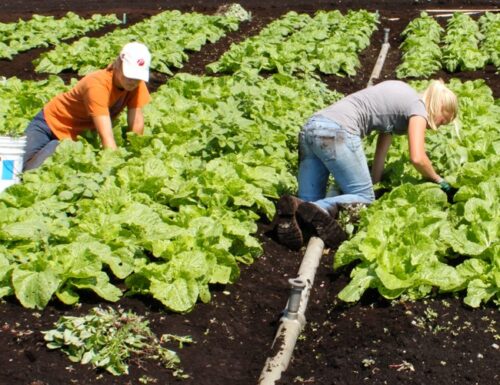Organic Certification
£0
About this course
Organic Certification Qatar
IQS QATAR – Infinity Quality Services Doha Qatar, ISO Certification Companies in Qatar is one of the largest and leading Organic Certification service providers in Doha Qatar. We provide quick, result oriented and easy to implement consultation and training for ORGANIC certification for less cost.
In some countries, organic certification is seen by the government, and commercial use of the term organic is legally restricted. Certified organic producers are also subject to the same agricultural, food safety and other government regulations that apply to non-certified producers.
Organic certification is a certification process for producers of organic food and other organic agricultural products. In general, any business directly involved in food production can be certified, including seed suppliers, farmers, food processors, retailers and restaurants. A lesser known counterpart is certification for organic textiles (or Organic clothing) that includes certification of textile products made from organically grown fibers.
Requirements vary from country to country (List of countries with organic agriculture regulation), and generally involve a set of production standards for growing, storage, processing, packaging and shipping that include:
Purposes and Benefits of the Organic Inspection
The organic certification Qatar inspection doesn’t need to be scary, stressful, or onerous. The inspection process can be useful to producers of crops or livestock, and processors or handlers of agricultural products. The organic inspection is a unique opportunity because it involves the most face-to-face contact between the producer or handler and an inspector who works for the certifier.
Organic certifiers conduct annual inspections of all their clients (certified parties) to verify, through on-site review of actual activities and the corresponding records that the clients are in compliance with the relevant organic standards. Every USDA-accredited certification agency must make annual inspections. Most inspections are scheduled with the client in advance; however, some inspections are unannounced. This publication will help you incorporate management practices that will keep you prepared for an inspection at any moment.
Organic certification addresses a growing worldwide demand for organic food. It is intended to assure quality and prevent fraud, and to promote commerce. While such certification was not necessary in the early days of the organic movement, when small farmers would sell their produce directly at farmers’ markets, as organics have grown in popularity, more and more consumers are purchasing organic food through traditional channels, such as supermarkets. As such, consumers must rely on third-party regulatory certification.
Certification is essentially aimed at regulating and facilitating the sale of organic products to consumers. Individual certification bodies have their own service marks, which can act as branding to consumers—a certifier may promote the high consumer recognition value of its logo as a marketing advantage to producers. Most UK certification bodies operate organic standards that meet the UK government’s minimum requirements. Some certification bodies, such as the Soil Association, certify to higher standards.
Becoming certified organic helps producers and handlers:
For More Details, Email Us: info@iqs.com.qa
Reviews
Lorem Ipsn gravida nibh vel velit auctor aliquet. Aenean sollicitudin, lorem quis bibendum auci elit consequat ipsutis sem nibh id elit. Duis sed odio sit amet nibh vulputate cursus a sit amet mauris. Morbi accumsan ipsum velit. Nam nec tellus a odio tincidunt auctor a ornare odio. Sed non mauris vitae erat consequat auctor eu in elit.
Members
Lorem Ipsn gravida nibh vel velit auctor aliquet. Aenean sollicitudin, lorem quis bibendum auci elit consequat ipsutis sem nibh id elit. Duis sed odio sit amet nibh vulputate cursus a sit amet mauris. Morbi accumsan ipsum velit. Nam nec tellus a odio tincidunt auctor a ornare odio. Sed non mauris vitae erat consequat auctor eu in elit.



